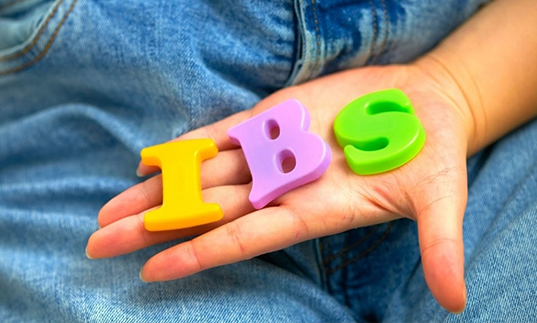What You Need To Know About IBS
A child when diagnosed with IBS – Irritable Bowel Syndrome is considered to experience a lot of
challenges, as it is not a simple health issue that has a one-stop solution to it. In fact, this can affect the
quality of a child's entire life. IBS is considered to be a chronic illness and has no cure. Hence, symptom
management is known to be the option.
Furthermore, it is also harder for parents to find balance for their children while not being affected by
the whole situation. People who are the parent of children with special needs oftentimes face difficulty
in creating a life that is sustainable for their child as well as supportive of their own personal lives.
With time it is becoming more and more essential for parents to educate themselves in the areas that
their child needs support in, Special Education Courses for Parents is one such supportive tool that can
effectively bring a positive outlook.

What is Irritable bowel syndrome?
Irritable bowel syndrome is a digestive disorder that affects the colon and causes abdominal pain, constipation, diarrhea, bloating, gas. IBS can occur in all ages, in children, diarrhea and constipation have been commonly seen as dominant symptoms. Though it does not lead to any serious health issues, IBS is very uncomfortable, and especially for younger ones, it can be quite challenging to endure the pain.
What are the common signs and symptoms of IBS?
● Diarrhea
● Constipation
● Diarrhea and constipation (alternatively)
● Bloating
● Nausea including vomiting
● Weight loss
● Sudden change in the bowel habit
What causes IBS – Irritable bowel syndrome?
The specific cause of IBS is still unknown; there is no clear diagnostic test for it. some research says that it runs in families. However, it is essential to know having stomach-related issues once in a while is normal. Professional consider when symptoms last 3 months including at least two of these signs, it’s time to go to the doctor:
● Stomach pain or irritability that feels better after a bowel movement.
● Increase in a number of times for going to the bathroom alongside pain and discomfort.
● Changes in the stool, either constipated or diarrhea accompanied by pain and discomfort.
And there are several theories developed over the years, indicating what may be the reason behind IBS:
● The possible issue is the communication between the gut and the brain.
● The intestines may have an unhealthy balance of bacteria.
● Underlying inflammation in the stomach.
How to take care of the child who has been diagnosed with IBS?
The first and foremost thing to take care of a child with IBS is to understand that supportive measures must be focused on gradual symptom improvement. Since there is no instant cure for this, taking care of your child also needs to emphasize making the child's daily life better.
Seek medical healthcare
Always be in touch with your child’s pediatrician. Going to a known pediatrician is your first step. Professional support from the healthcare provider can help you to build that understanding of what kinds of changes and supportive measures can be taken to better symptom management. Needless to say, both the parents and the doctor need to coordinate with each other for better treatment outcomes. Make sure you set a reasonable expectation when it comes to finding what works for your child.
Digestive care
IBS is a digestive problem. It can be treated and symptoms can be managed well by changing the diet of the child. For starters, milk and dairy products, gassy foods, and specific food that seems to cause bowl irritation need to be avoided. Plus, introducing more fiber into the diet can also support a child's health. A smaller portion with eating on the basis of interval may help. Also, with time bowel training at regular and specific times can bring better adjustment to be in sync with the body.
Work on lifestyle
Because IBS is oftentimes tied to everyday stress, the psychological and emotional aspects can be neglected. Whether it's the home environment or pressures related to homework, school, or friends, understand if there is an area in your child's life that needs to be properly discussed. If he/she seems stressed or anxious, after discussing with your child's primary healthcare provider you can also seek counselling support. This can allow the child to be more relaxed in everyday activities and living.
Conclusively, guidelines are always helpful when it comes to handling parents' specific situations. Parents whose child has IBS can take optimal help when they have a good understanding of the ongoing situation and are willing to take the necessary measure. Having a child who is facing a challenge in everyday life can be stressful for parents too, Special Education Courses for Parents can help to bring awareness with which parents can make their lives simpler with appropriate strategy.















